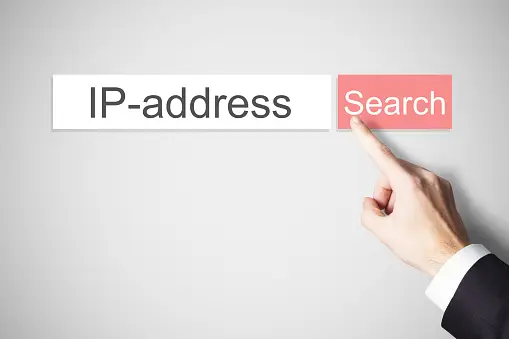In the digital age, where information flows at the speed of light, understanding how to obtain someone’s IP address can be a valuable skill. Whether you’re a cybersecurity enthusiast, troubleshooting network issues, or simply curious about the world of internet protocols, this article will guide you through the process. So, fasten your seatbelt as we embark on a journey to unveil the secrets of “How to Get Someone’s IP.”
How to Get Someone’s IP Address: The Basics
Understanding the fundamentals is crucial before diving into the specifics. Here, we’ll explore the basics of IP addresses.
IP Address Demystified
An Internet Protocol (IP) address is a unique numerical label assigned to each device connected to a computer network. It serves two primary purposes: host or network interface identification and location addressing.
IPv4 vs. IPv6
There are two primary versions of IP addresses: IPv4 and IPv6. IPv4, the most widely used, consists of 32 bits, while IPv6 has 128 bits. We will focus on IPv4 since it’s the most relevant for our discussion.
Public vs. Private IP Addresses
IP addresses can be categorized as public or private. Public IPs are visible to the internet and are assigned by Internet Service Providers (ISPs). Private IPs are used within a local network, such as your home or office, and are not directly accessible from the internet.
Methods to Obtain Someone’s IP Address
Now that we have a solid foundation, let’s explore various methods to retrieve someone’s IP address.
- Social Engineering
Social engineering involves manipulating individuals into revealing confidential information. While unethical and often illegal, it’s important to mention for educational purposes only.
- Email Headers
Email headers contain valuable information, including the sender’s IP address. You can view email headers in most email clients.
- Website Logs
If you own a website, you can access server logs that record visitor IP addresses. This method is legal but requires a legitimate reason and privacy compliance.
- Command Prompt (Windows)
On Windows, you can use the Command Prompt to ping a website. The resulting IP address is the web server’s IP.
- Using IP Logger Services
Several online tools and services, like IP loggers, allow you to create a link or image that, when clicked, logs the visitor’s IP address.
- Network Sniffing
Advanced users can employ network sniffing tools like Wireshark to intercept and analyze network traffic, revealing IP addresses.
- Social Media
Some social media platforms display a user’s IP address when they send a direct message or connect to a voice chat.
Ethical Considerations
Before attempting to obtain someone’s IP address, it’s crucial to address the ethical aspects of such actions.
Respect Privacy
Respect individuals’ privacy and only use IP tracking methods when legally and ethically justified, such as for cybersecurity or network troubleshooting.
Legal Consequences
Engaging in illegal activities, such as hacking or stalking, by obtaining someone’s IP address can lead to severe legal consequences.
FAQs
How can I find my own IP address?
Your public IP address can be easily found by searching “What is my IP” on Google. For your local (private) IP address, use the command prompt and type “ipconfig” (Windows) or “ifconfig” (Linux/macOS).
Is it legal to track someone’s IP address?
Tracking someone’s IP address without their consent can be illegal, depending on the context and your intentions. Always ensure you have a legitimate reason and adhere to privacy laws.
Can I hide my IP address?
Yes, you can hide your IP address using Virtual Private Networks (VPNs) or proxy servers. These services route your internet traffic through their servers, masking your true IP address.
Is there a difference between IPv4 and IPv6 tracking?
Tracking IPv4 and IPv6 addresses follows similar principles, but the longer and more complex nature of IPv6 addresses may require specialized tools.
What is the importance of IP address tracking?
IP address tracking can be crucial for cybersecurity professionals, network administrators, and law enforcement agencies to identify and address security threats and malicious activities.
Can I change my IP address?
Yes, you can change your IP address by disconnecting and reconnecting to the internet (if you have a dynamic IP). Alternatively, you can use a VPN to mask your IP.
Conclusion
In this article, we’ve delved into the world of IP addresses, learning the basics, exploring various methods to obtain someone’s IP, and emphasizing the importance of ethical considerations. Remember, with great power comes great responsibility. Always use this knowledge for legitimate purposes and respect individuals’ privacy.
Now that you’ve unlocked the secrets of “How to Get Someone’s IP,” use this newfound knowledge wisely and ethically to navigate the digital realm securely.




